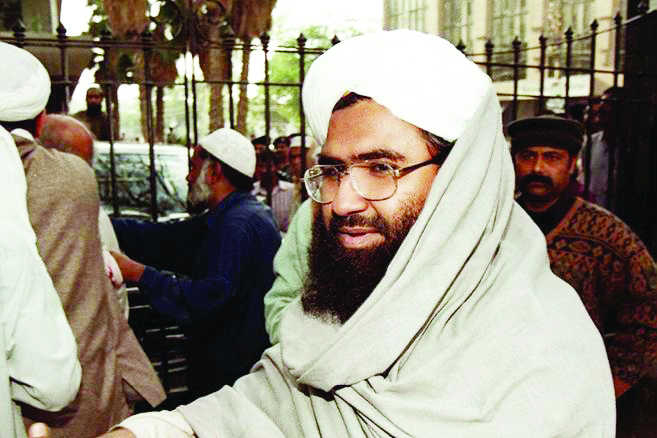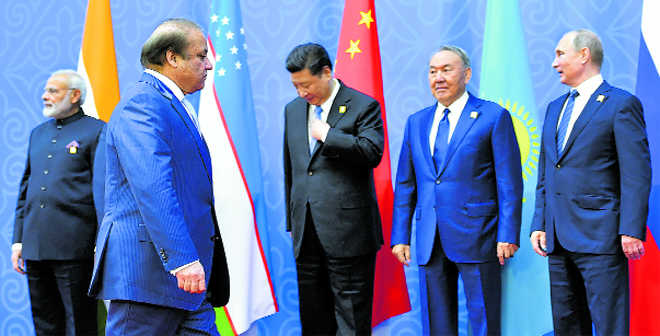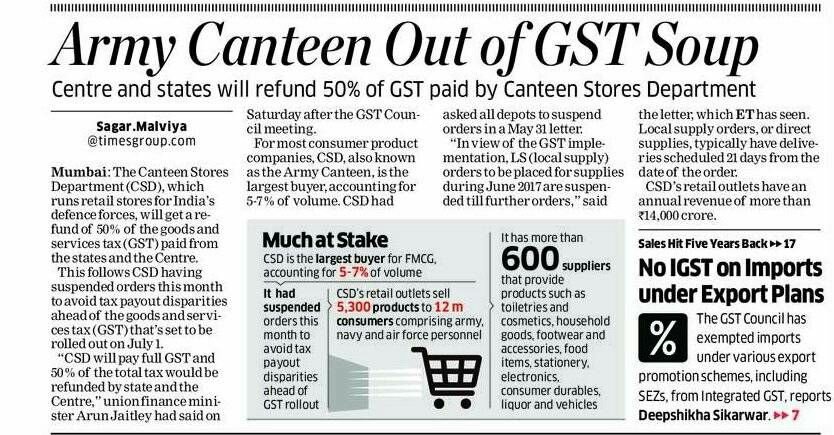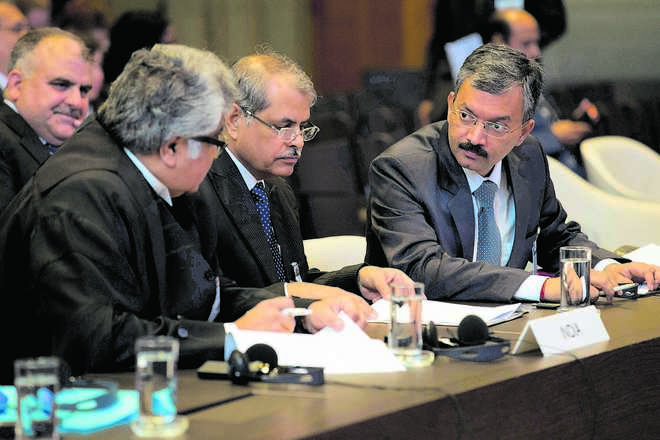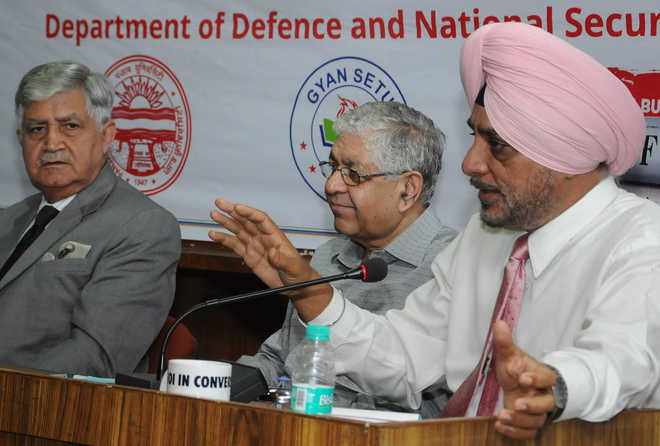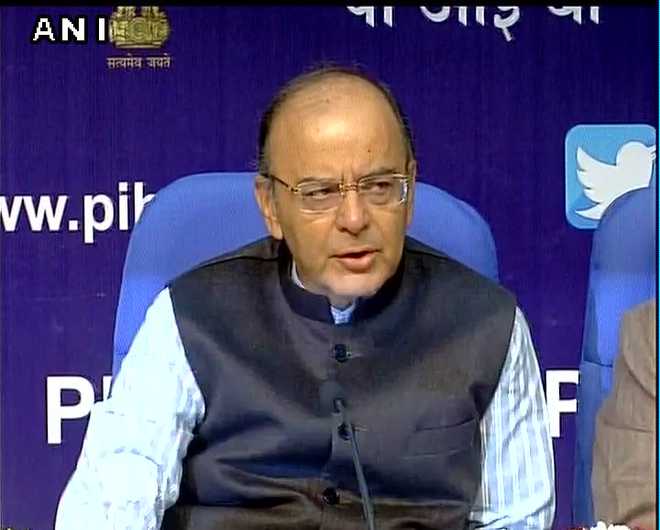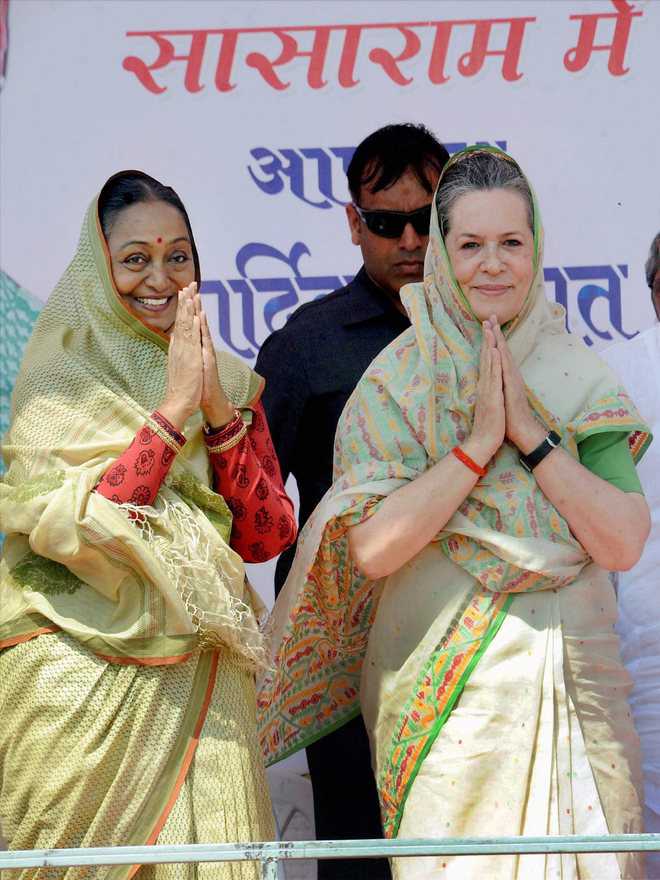
LS ex-Speaker Meira Kumar with Congress chief Sonia Gandhi. file
Aditi Tandon
Tribune News Service
New Delhi, June 23
Sudden turn of events over the past week have again brought Congress veteran Meira Kumar face to face with destiny. It’s familiar territory for her though.On June 3, 2009, Kumar was unanimously elected the first woman Speaker of the Lok Sabha. This June, she has emerged the Opposition’s unanimous choice to contest the July 17 presidential election. This may not have been the case had the BJP nominee not been a Dalit. Consciously avoiding the caste reference, Kumar today kept her reaction to the nomination guarded.“I express my gratitude to 17 Opposition parties which have selected me as their presidential candidate. I am delighted by the Opposition’s unity. The post of the President is not symbolic. It carries the responsibility of safeguarding our constitutional principles. I appeal to the members of the collegiums to base their decision on these cherished principles and secure them for our future generations,” Kumar said in her first statement post nomination today.She also described the July 17 fight as ideological, terming the post of President beyond realms of castes and regions. “The Opposition unity represents the coming together of forces which have a strong ideological base. I am going to contest election as their representative. The President’s post embodies the diversity of Indian culture and the vision of our composite ideology. It transcends the considerations of caste, religion or region,” said Kumar as her life came a full circle today.And how? BSP chief Mayawati will back the nomination of Kumar as President, having tasted defeat at her hands in 1985 Lok Sabha elections from UP’s Bijnor. That was Kumar’s first election in which she defeated two Dalit icons — Mayawati and Ram Vilas Paswan.Kumar’s five LS terms later culminated in a dream elevation as Speaker of the 15th Lok Sabha between 2009 and 2014, a House that will be remembered for disruptions. Kumar, however, acquired the reputation as a mild-mannered Speaker, a contrast from Somnath Chatterjee, the forceful Speaker of the 14th LS.As for Kumar’s politics, much of it remained rooted in the ideals of her late father Jagjivan Ram, a freedom fighter and former Deputy PM under PM Morarji Desai.Kumar graduated in law from Cambridge and went on to join the Indian Foreign Services, serving in various missions, including Madrid and London. She turned to politics in 1985. Besides being a LS member, Kumar held high organisational positions in the Congress as general secretary and Working Committee member and later became minister in UPA-I handling social justice and water resources.












